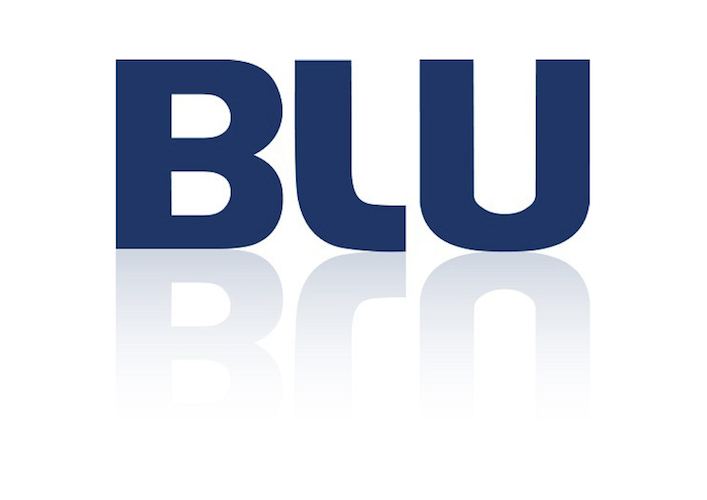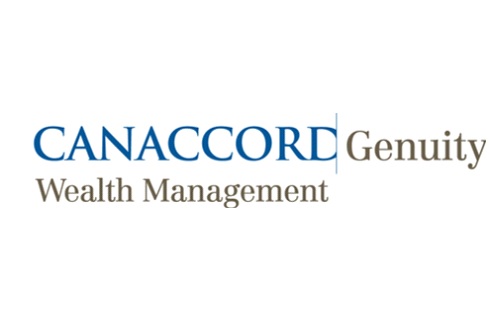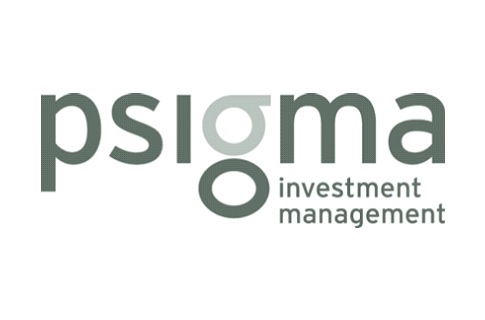This month:
Trade wars loom following Trump negotiations
Italian political worries hit the headlines.
Geopolitical upsets threaten tail risks generally.
The return of volatility makes the returns path bumpier.
Trade skirmishes break out between the US and China, Mexico, Canada and the EU.
Featuring this month’s experts:
Increased market volatility is predicted as we enter the second half of the year, while Italy’s new coalition government has added a further facet to potential geopolitical risks.
Here, leading wealth managers from our panel give their views on recent events and explain the key risks – and opportunities – investors should be thinking about.
Italy: That was the week that was
Insights from:

Ahmer Tirmizi, Investment Manager at Seven Investment Management (7IM), says:
The latest Italian political worries to hit the headlines caused quite a stir given that the country has had nearly 70 governments since World War II. And since few governments have lasted more than a year, few believe this latest coalition will last much longer than an initial honeymoon period given it could be seen as a tie-up between Italy’s own ‘versions’ of Bernie Sanders and Donald J. Trump. But whilst it could just be yet another wobble, politics may yet matter.
The country’s economic problems are longstanding – and will continue to be so given the scale of the issues. It’s a concern that an economy that is half the size of Germany has a similar level of debt. And the cost of servicing its debt effectively acts as a drag on the economy, while a slow economy does nothing to bring that debt burden down. It’s a vicious cycle that is slow moving and relies on a combination of government frugality and nothing going wrong in the global economy to keep a lid on it.
![]()
An increase in spending might not threaten the country’s debt burden per se and Italy’s debt level is actually expected to shrink this year, but bond markets could still vote with their feet.
Despite ‘Quitaly’ being an unlikely scenario – none of the populist parties ran on a campaign platform to leave the EU – the promise of a rejection of European austerity could be the root of a real crisis. Yes, an increase in spending might not threaten the country’s debt burden per se and Italy’s debt level is actually expected to shrink this year, but bond markets could still vote with their feet. Tuesday 29 May saw the biggest one-day change in Italian bond yields since 2011. Imagine what bond markets really could do if they see debt increase beyond current forecasts.

Ahmer Tirmizi
Investment Manager at Seven Investment Management (7IM)
Beware potential tail risks
Insights from:

Christian Armbruester, Chief Investment Officer at Blu Family Office, says:
If you look at the chart of the UK stock market, it is amazing how seemingly perfect this upward trend has been for a very long time. Since the early eighties, the FTSE100 Index has risen some 600%, never mind the 1987 crash, the bursting of the dot com bubble or the subprime crisis!
Can this truly astonishing performance continue? Applying technical analysis, surprisingly the index is neither overheated or due a correction. A regression of the historical performance numbers shows that we are right in the middle of a trading channel that has been intact since 1984. There is near-term resistance at 7,750 and support at 7,300, but even a rise to 8,800 or a drop to 6,600 would still leave this trend very much in place and there seems very little sense in betting against the strength in these numbers.
![]()
Whereas corporate profits are high, and valuations based on price to earnings ratio are relatively benign in a historical context, one has to wonder if the effects of a hard Brexit are really priced into these market levels.
Fundamentally, it gets a bit tougher. Whereas corporate profits are high, and valuations based on price to earnings ratio are relatively benign in a historical context, one has to wonder if the effects of a hard Brexit are really priced into these market levels. It would be wise to keep an eye on sterling for clues of changes in sentiment, manifested through capital flows in the foreign exchange markets.
It is tough to call the geopolitical headwinds and the economic consequences these days, but fair to say there is a lot of potential tail risk out there. How much risk, or in other words, what if we broke through the afore described (and much admired) trend channel? Well, the last two times we had a major market correction, the FTSE didn’t find support until it fell to 4,000. One can only hope that not all good things come in threes.

Christian Armbruester
Chief Investment Officer at Blu Family Office
The new normal
Insights from:

Caroline Simmons, Deputy Head UK Investment Office at UBS Wealth Management, says:
After historically and abnormally calm financial markets in 2017, 2018 has seen the return of volatility. As we pass the halfway point of the year, it is time to revisit how investors should respond to this ‘new normal’. The road ahead will require careful navigation and harder work to earn the desired returns than the road behind us.
A number of factors suggest that volatility is likely to persist this year. There are signs that the economic cycle is maturing, central banks are beginning to end the era of extraordinary monetary policy support, and various geopolitical threats pose a risk to global growth. The latter has been all too evident in recent weeks as markets continue to digest the results of ongoing trade talks, as well as the recent political crisis in Italy – the risk-off reaction of which momentarily spilled into other markets.
![]()
The presence of risk and normalised volatility does not mean that it is time to jump to cash. In fact, we still see positive returns for risk assets.
Yet the presence of risk and normalised volatility does not mean that it is time to jump to cash. In fact, we still see positive returns for risk assets, driven by continued economic growth and supportive monetary policy, and so we remain overweight on equities against fixed income. The return of volatility may make the returns path a little bumpier, and we recommend continued diversification, particularly incorporating less correlated assets, in order to navigate the volatility.
This year more than ever, it is crucial that investors adhere to the principals of diversification. Those in properly diversified portfolios, who adopt a longer-term, more sustainable approach, will be best prepared to manage the risks around the return of volatility.

Caroline Simmons
Deputy Head UK Investment Office at UBS Wealth Management
Global trade wars – Haggling in the bazaar
Insights from:

Richard Champion, Deputy Chief Investment Officer at Canaccord Genuity Wealth Management, says:
If you’ve been following Trump’s trade negotiations you might see more than a few similarities between his approach and that of market traders in the Souk. In this hive of capitalism, haggling is de rigueur – no one pays the asking price. This is apposite to the 45thPresident of the United States of America, who considers himself an arch negotiator.
This is the lens through which we need to understand the trade skirmish between the US and China, Mexico, Canada and the EU. To President Trump, everything is a deal. So how will this trade war farrago proceed?
- The initial asking price will be ridiculous. Remember Trump’s campaign pledge to levy a 45% tariff on all Chinese exports to the US?
- You should never appear too keen to complete the deal. Pretending to walk away is almost expected. The other side will re-engage with you if it is in their interests – like Mexico and Canada over the renegotiation of NAFTA.
- Know what you’re prepared to pay and stick to it. If you don’t want something, just leave the negotiating table and don’t look back (take the Paris Climate Treaty).
![]()
Trump will get some concessions, but underneath, world trade will continue – perhaps less robustly than before – but based on its own momentum.
After a period of bluster, with threats of retaliation and WTO litigation, the haggle will begin in earnest and in the end, a deal will be done. Trump will get some concessions, but underneath, world trade will continue – perhaps less robustly than before – but based on its own momentum.
The US trade deficit will still exist – it just isn’t economic to build aluminium or steel plants in the US. This is a new world in trade negotiation – but it is Trump’s way – he loves the deal, he lives for the haggle, just like the store owner in the Souk. We could well be living with it until 2024.

Richard Champion
Deputy Chief Investment Officer at Canaccord Genuity Wealth Management
Key investment themes and how to play them
Insights from:

Tom Becket, Chief Investment Officer at Psigma Investment Management, says:
The current major themes underpinning our clients’ investment strategies are ‘defence’, ‘inflation protection’, ‘hunt for yield’, ‘long-term equity’ and ‘emerging market growth’.
At all times our strategy is broadly a diversified mix of our core themes, blended to help us achieve our clients’ long-term aims and we expect this approach to continue to be successful in the uncertain future.
Defence’ is arguably our most challenging theme to populate at this time, given high valuations and rising correlations between bonds and equities. A key position, therefore, is the Odey Odyssey fund, which is positioned negatively towards all assets and acts as a hedge in our portfolios.
Inflation protection” is a vital theme of our portfolios at all times, given the long-term inflation-plus targets that we use with our investment strategies. At this time, a key position in our portfolios is the Fidelity Global Inflation-Linked Bond fund, where we admire the short duration focus and the efficiency of the inflation break-evens that the fund is currently invested in.
![]()
A major issue for all investors over the last few years, due to the distortive effects of global quantitative easing, has been sourcing attractive levels of income in global bond markets.
A major issue for all investors over the last few years, due to the distortive effects of global quantitative easing, has been sourcing attractive levels of income in global bond markets. We have worked with TwentyFour Asset Management and Semper Capital Management in specific mandates in short duration credit, specialist US high yield credit, European asset-backed securities and US residential mortgage-backed securities.
The growth elements of our portfolios are within the ‘long-term equity’ and ‘emerging market growth’ themes. Current key positions are in Polar Capital Healthcare Blue Chip, helping us to achieve exposure to a favoured sector, and RWC Nissay Japan Focus Fund, to provide exposure another favoured theme of Japanese corporate change.

Tom Becket
Chief Investment Officer at Psigma Investment Management
Important information
The investment strategy explanations contained in this piece are for informational purposes only, represent the views of individual institutions, and are not intended in any way as financial or investment advice. Any comment on specific securities should not be interpreted as investment research or advice, solicitation or recommendations to buy or sell a particular security.
We always advise consultation with a professional before making any investment decisions.
Always remember that investing involves risk and the value of investments may fall as well as rise. Past performance should not be seen as a guarantee of future returns.
